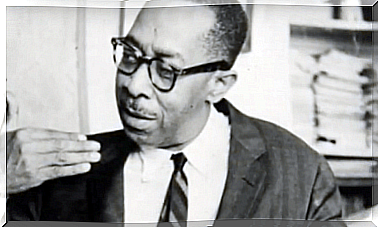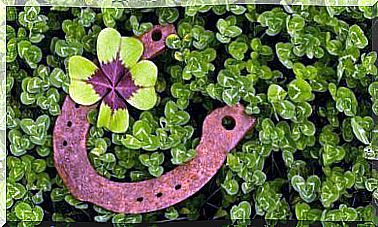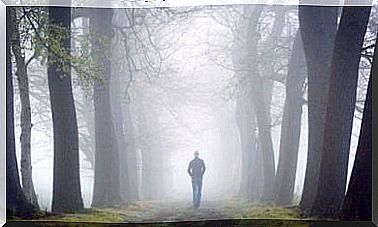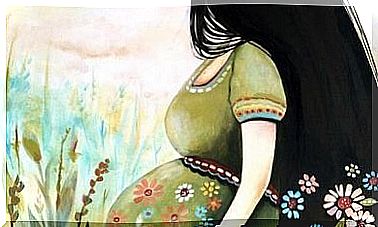When Our Brain Chooses Not To Feel Anything In Order Not To Suffer
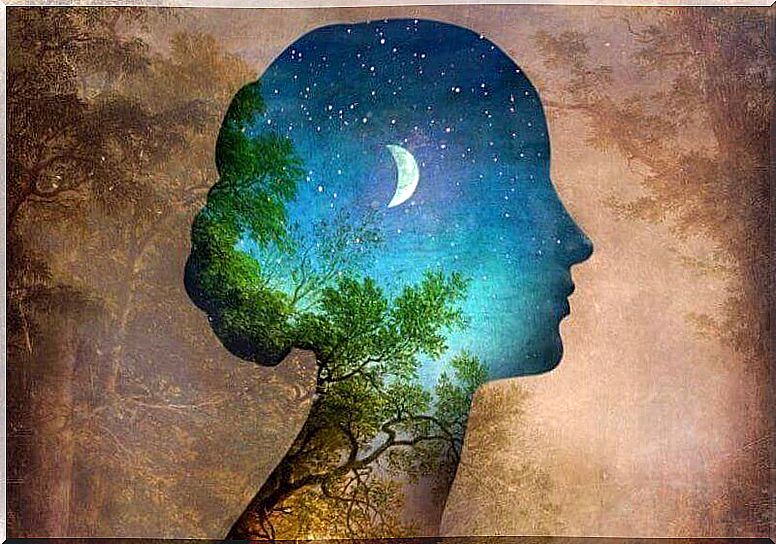
Suffering is not a personal choice, as no one chooses of their own volition to experience pain or emotional isolation.
Thus, there is no anesthetic to stop suffering, and dark moments must be faced with strength, courage, and with new hope.
Life is not always easy . We have heard this phrase often… And anyone who has never known adversity cannot understand how real these words are.
To live is to face challenges, to build one, two, six projects or more, it is to allow happiness to permeate our lives and to accept that, from time to time, suffering rings at our door to put us to the test.
We do not face all these hard knocks in the same way. There are those who manage to cope with disappointments, and those who internalize them, which destroys their self-esteem.
No grief is experienced the same, just as no depression has the same origin.
However, there is one very common symptom that we have experienced in some way at least once in our life – anhedonia.
It is the inability to feel pleasure or enjoy things. So to speak, our brain decides to “disconnect”, and not to feel anything any more so as not to suffer.
When apathy and discouragement take hold of you, you may have already felt it for several days.
However, what happens in case of chronic anhedonia? What happens when you completely and continuously stop “feeling” the things in life?
Today we will tackle this topic to suggest some strategies to help you and to deepen this very important aspect.
Anhedonia, when we lose the pleasure of living
As we told you at the beginning of this article, there is no suitable anesthetic for the suffering of life.
When anhedonia takes place in our brain as a defense mechanism, it does us no good.

Let’s start by clearing up a few points:
- Anhedonia is not a disease or a disorder: it is a symptom deriving from an emotional process or some type of disease.
- In most cases, anhedonia is closely related to depression, but it can also occur as a result of schizophrenia or dementia such as Alzheimer’s disease.
- In a more or less pronounced way, we have all already experienced anhedonia at least once, through a lack of interest in social relations, in food, in communicating with others …
- The real problem arises when anhedonia builds a wall that cuts us off from the outside world and takes away any glimmer of humanity. We no longer feel anything in the face of expressions of affection, we don’t need anyone by our side, no stimulation gives us pleasure, neither food nor music… nothing.
However, in reality, if we choose to feel nothing in order to no longer suffer, we will not be protected from anything.
We would only close the doors of life and become only souls destroying themselves little by little …
Cerebral anhedonia
This low receptivity to external stimuli is clearly reflected in the brains of people with depression.
It is important to be aware of the types of processes that take place inside when we experience anhedonia:
- If this condition becomes chronic and the depressive process lasts over time, our brain structures will suffer changes, which will affect our judgments, thoughts and emotions.
- The frontal lobe, in connection with decision making, is reduced.
- The basal ganglia, in connection with the movement, will be severely affected, so even getting out of bed requires a lot of effort.
- The hippocampus, related to emotions and memory, can also lose volume. It then becomes common to suffer from memory loss and a lack of defense and to be obsessed with negative thoughts.
Often people think of depression as the “disease of sadness”. However, in reality, this notion goes much further.
It is the prison of the emotional brain, which no longer finds an answer to life’s voids, disappointments and loss of hope.
Strategies for dealing with anhedonia and depression
Depression does not “cure” itself and confront itself day in and day out. It requires many approaches, depending on the reality of each person.
Medicines, therapies, family support and especially the own resources that everyone can deploy, are the key elements.

However, for our part, we invite you to think about these few points:
Not feeling anything in order to stop suffering is not a healthy mechanism with which we can live.
Indeed, it will simply allow you to “survive”, but you will always remain empty inside. Do not accept to be the eternal prisoner of suffering.
If there is anything positive about anhedonia, it is that it leaves out the ability to feel. So, now that you are anesthetized against the pain, it’s time to ask yourself what you need.
- Do you need tranquility and happiness to resurface in your life? Rejoice again.
- Do you need to stop being a prisoner of the past? Take a step forward.
- Do you need to stop suffering? Dare to live again, open the doors of your heart and allow yourself to be happy again.
Think about these few points for a moment, and always remember that to live is to feel in all its intensity.
